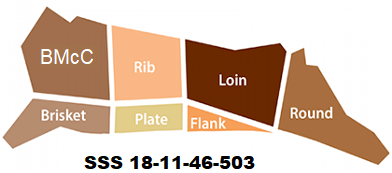 Welcome
Welcome"What men are willing to put up with depends on what they are able to look forward to." (Arnold Hauser)
"You catch more flies with honey than with vinegar." (Source unknown)
Quality achievement cannot be graded but only respected, and, yes, criticized by persons competent to appreciate it. It makes no sense to compare a drawing by Leonardo da Vinci with a small ceramic vase I own made by a master ceramic craftsperson. The Leonardo is obviously in ways "bigger" or "more important' or some other "-er", but it is not better; the vase weights more. Both exist in a domain outside what it measurable. Any school teacher who does not understand this and apply it to his (her, other's) students needs to be constrained to pedagoging only young persons incapable of producing anything of quality. Otherwise they earn a failing grade and should be either transferred to a place where they can do no harm or else be expelled from the school for failure to measure up.
Calling all self-righteous pedagogues (Pharisees)! Here is a test for you: You are in the Temple in Jerusalem, 12CE. Jesus is sitting among the teachers, listening to them and asking them questions Everyone who hears him is amazed at his understanding and his answers. (Luke 2:46-47) For some reason, they've let you in. What course is Jesus a pupil in? More important: What grade do you give Jesus? I'll answer for you: You don't grade anything you don't understand; you respect it. ☠ To give a person a grade (except maybe for "A" or "A+" with an annotation indicating teacher is honored) assesses they do not know anything teacher does not already know, so, except as prospective human resources (labor power), they have no value. To "teach", they're all just Hollerith cards to run thru the sorter: "A"'s go in one output pocket, "B"'s in the next output pocket, and so forth. Are you having fun? The students must be like slabs of meat. Here is the USDA categorization (in descending order of merit):

(Source: Beef2Live.com: "Eat beef; live better") CANNIBALS! Fortunately for myself, I was almost always "Prime" (I usually made the Headmaster's List – Head master? Was I, in mid-20th Century CE, back before The 13th Amendment to the United States Constitution? But my parents where nominally Freemen). I lived in pervasive fear of what would befall me if ever I fell below "Choice" (aka: "B" grade): my dreaded "Or else!". ("Again, are 'you', my tor-mentors, having fun intimidating me? Cannot you wait until I am dead?") One time I did fall, and my parents berated me and explained to me that it would not happen again (they conflated or confused the categories of normative and factual).
Of course not all students are geniuses. I define genius as a person producing syntactically and semantically validly parsable character strings that cannot be computationally produced from the set of all existing syntactically and semantically valid character strings (cf. Kurt Gödel's Incompleteness Theorem – but Gödel was mentally ill). I (BMcC) was not a genius. I would have been one, had I been able to produce the text so far in the present webpage, and to broadcast if to my "masters" (aka: teachers). I think they would have demonstrated that they did not understand very well understood higher maths, by punishing me to put me in my place. Not every learner can be a genius; but can every learner be a decently respected human person? "Thou shalt not be aware" (Alice Miller). Retrospectively: Damn them!
I may, however, be wrong[ed] here. I recently read a Quora forum article from a man who got humiliated in his first day of High School by the science treacher (←typo honored!). It turned out that the teacher's MO was always to humiliate students on their first day in his classes. The young man went to his English teacher (Would you believe? her name was: Mrs. Dean). In tears, he asked her if that was what the rest of his life was going to be like so that he needed to get used to it. She was a human being. She told him it was not right, and that if somebody ever treated him that way again, he should confront them about their disrespectful behavior. I responded to said Quora poster that their posting was great and that I never had such a teacher in my schooling.
(Of course, grading depends on: Testing.) Read here my (BMcC) idea of: really good learning environment. Also: Luke 2:41-52.
Nunerical grades are quantitative. The teach can set any metric he (she, other) wants without assuming responsibiiuty for the meaning of what he is doing. Numbers are just numbers, like the dimension of a room, which in no way give an assessment of the quality of the space. Letter grades requirer the teach to expose his judgment: I find this piece of work excellent ("A"). I find this piece of work good ("B"). This piece of work is tolerable ("C"). This piece of work in not passable; the student will not be able to cope with the work in the next grade ("D" for "dunce"). And this doesn't qualify as even trying, like monkeys pounding keys on a typewriter or somehting else inapplicable to the subjet matter ("F"). Numerical grades, on the otther hand say nothuing about quality and are like a treadmill: No person can run so fast that you cannot turn up the incline and th speed far enougnh to cause to fall off.
T may be disageements about grades an grading, but with latter grades, the teach has made a judgment you cn agree or disagree with. Numbers are just numbers, so the process of arguing about them has to go deeper into environmental factors to just get to the point of having an assessment to argue about (à la letter grade) in the first place.
I was never interested in rewards for faculty approved pupilship, such as good grades or "book prizes". A dog gets a reward for learning a new trick. I wanted recognition as a self-accountable person tasked with shaping my own life according to experience, study and the light of my creative reason, who could choose to share and share alike what I felt important with others as peers in discourse.
A person gets rewarded for doing what somebody else wants done: it's an asymmetrical social relationship of rewarder to redardee, again, like master to dog. Recognition is more symmetrical: it requires the recognzee to have done something worthy of recognition, but also that the recognizer qualifies as having the capacity to recognize the recognizee's accomplshment. A great accomplishment can go unrecognized by dolts. But a teach can reward a pupil for jumping thru the hoop he had set up to test the pupil, or not. It's like if a person did not recognize that a house cat had figured out different vocalizations for wanting food in its bowl or for the faucet to be turned on for water ("Oh, it's just the cat meowing."). The person would have failed the cat.
As I might put it today to St. Paul's School for Boys faculty and administration employees: Charles Carroll of Carrollton built your school's adminstration building and was a signer of The Declaration of Independence. It would have been appropriate for you to treat me with the same respect you would have accorded Mr. Carroll. Then it would have been appropriate for me reciprocally to respect you for respecting me.
I never did constellate myself as a dog or a trained seal, but that was no thanks to either my parents or my teaches at St. Paul's School for Boys (sounds like a reformatory, doesn't it?), who taught me, as I have recently discovered Ludwig Wittgenstein felt, that: "most people are not worth much."
Somebody: "So they tell you you should get 'A' grades or at least as high grades as you can? And that's an objetive in itself?" (BMcC[18-11-46-503])
 Unfortunate for themself, the person who lacks one; unfortunate for others, the person that is one. Don't be an a**hole! |